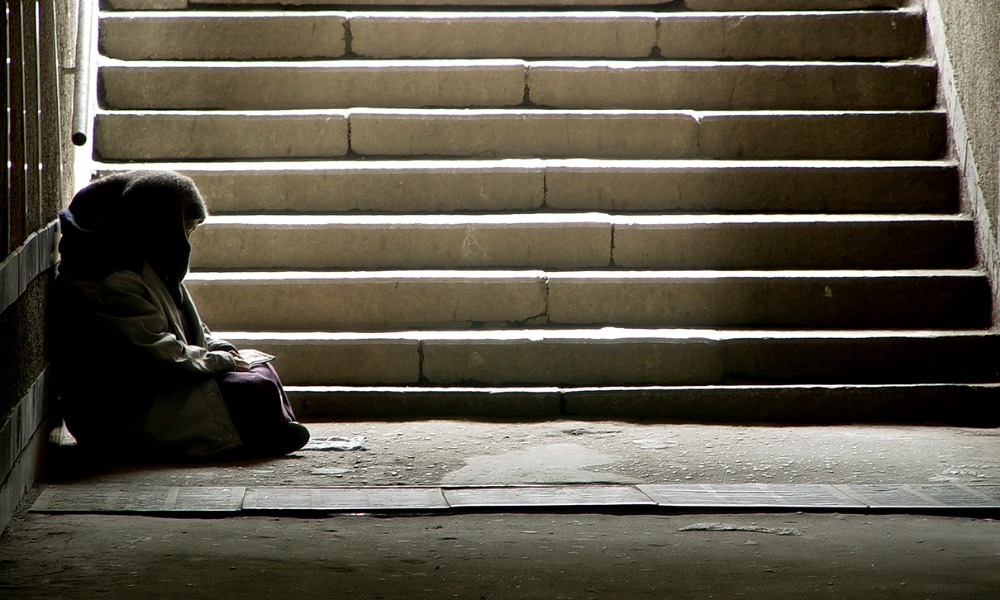One lender is throwing its weight behind the cause

“At Nationwide, we believe everyone should have a place fit to call home,” according to Rachel Smith, senior social investment manager at Nationwide Building Society.
A report commissioned by Simon Community in partnership with Ulster University, and supported by Nationwide Building Society, revealed that the impact of the pandemic and the increasing cost of living, are leading to poverty and fuelling the housing crisis.
Read more: Report reveals 'hidden homelessness' problem in Northern Ireland
More than 110,000 people in Northern Ireland can be considered “hidden homeless” and more are at risk of becoming part of this community, according to the report.
“One of the charities we supported is the Simon Community in Northern Ireland and the publication of their report on Hidden Homelessness,” Smith said. “We welcome the findings and recommendations on agreeing a definition of hidden homelessness.”
The hidden homeless often do not show up on official statistics as the term references people sleeping in their cars, in squats, on the floors or sofas of family and friends, in unsafe accommodation or in homelessness projects.
As the report states there is no clear definition in Northern Ireland and no absolute data on hidden or concealed homeless. Smith explained that this is a big issue because it can cause confusion and hide the true extent of homelessness.
“We know the past couple of years have been exceptionally challenging for many of us and now we are battling rises in the cost of living, which is resulting in mounting pressure on household finances,” she said.
This will mean more uncertainty for those in a vulnerable housing situation, as well as increasing demands on local charities and communities.
As a result, Smith believes that everyone needs to work collectively across the private, public and third sector to find long-term solutions that can address these issues and help end hidden homelessness.
According to the report, the most common reasons cited for households presenting as homeless include because the accommodation was not reasonable - with 4,239 households stating this. This was followed by property-sharing breakdown or family dispute at 3,650, and loss of rented accommodation at 2,327.
Smith went on to say that with the shortage of new properties, outdated rental stock and a lack of support for the most vulnerable people in our communities, many end up in unsuitable, unsafe or unaffordable accommodation.
A report commissioned by National Housing Federation and Crisis, from Heriot Watt University, has suggested that 340,000 new homes are needed in England each year, of which 145,000 should be affordable. Yet only 216,000 new homes were built in 2020, down from 243,000 in 2019 and the trends since the 1960s have been poor.
Read more: UK housing crisis – what can be done to solve it?
However, according to the government, there were 49,470 completed homes in the first quarter of 2021, which is the highest figure in over 20 years and a 4% increase compared to the last three months of 2020.
“Helping people into homes is central to how and why we began 140 years ago, and it is the reason we launched our Community Grants programme,” said Smith
The programme is a chance for local organisations with great housing solutions to apply for grants of up to £50,000.
“This year we have awarded around £3.7 million to over 90 charities across England, Wales and Scotland and £335,000 to 72 charities in Northern Ireland, many of which have been setup to help prevent people falling into homelessness,” added Smith.
According to Smith, there are also a number of other ways Nationwide is helping address housing issues, alongside the Community Grants programme.
“One is our partnership with housing charity Shelter, which we have been supporting for more than 20 years,” she said.
During that time, Smith explained that colleagues and members have raised more than £6.7 million to fund Shelter’s frontline services, as well as helping almost 100,000 people facing bad housing and homelessness. She went on to say that colleagues and members have also supported Shelter’s helplines for those facing homelessness, and worked together on policy and campaigns that make a difference to people in housing need.



